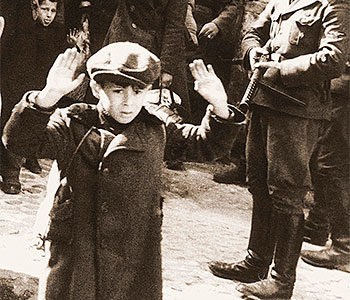IT’S THE QUESTION OF THE WEEK.
And it comes from Matthieu Sabiti, in the Democratic Republic of the Congo. He wins a free book for his trouble.
Here’s his question—incredibly pertinent for him, given the pillaging and warfare that he and his fellow Congolese citizens have endured in recent decades.
Apostle Paul says in the book of Romans 13:1, “Let every soul be subject to the governing authorities. For there is no authority except from God.”
Should we Christians submit to these authorities, most of whom are empowered by Satan and serve him as well by doing what is against the Bible?
Don’t you think Apostle Paul went a bit far? Since Satan also gives authority, don’t you think we’re saying yes to the devil’s manipulation [when we submit to Satan’s authorities]?
Paul didn’t seem to think so.
And he lived in a country occupied by vicious Roman invaders. Think Congo, run by Rwanda.
But German minister Dietrich Bonheoffer (1906-1945) seemed to think so.
He was executed for trying to assassinate Adolph Hitler.
Citizens of Matthieu’s homeland have been living through tough times:
- A new and fragile democracy, following three decades of a dictator who allegedly stole $4-5 billion from his own people.
- 17,700 UN Peacekeeping forces trying to help the Congo fend off rebels allegedly backed by neighboring Rwanda.
- 1 million Rwandan Hutu refugees who fled genocide in their homeland.
What was the apostle Paul thinking when he made his sweeping statement?
Obey all rulers because they rule by God’s authority?
Some scholars wonder if Paul was thinking mainly about his upcoming trip to Rome. He wrote his statement to Christians living in the capital city of the Roman Empire. And he wrote at a time when Christianity was newborn and vulnerable.
For Paul, planting the church was his top priority. He wasn’t about to get distracted by the wacked Roman politicians. And they were wacked: “messed up.”
Another, less delicate way of saying that: Paul was sucking up to the Roman political leaders. He wanted them to think of him as an ally, not as a threat. That way, they would leave him alone and let him plant churches.
It’s a theory.
Did Paul intend this one letter to Christians in one church during a single moment in history as a guide to all Christians in the entire church throughout every moment in history?
Sure. Some would say that. Don’t mix religion and politics.
Others would qualify their “Sure.” They would say we should follow Paul’s principle, though not necessarily the way he practiced it in his specific situation.
Paul’s principle: give top priority to spreading the story of Jesus.
But that doesn’t mean we always have to submit to evil or to insanity.
Sometimes we can multitask: spread the word of peace, and make a little peace—gag a politician today.
Forget Paul for a moment.
If we look to Jesus alone, he didn’t do politics. He helped hurting people.
The only politicians he took on were those in religious institutions.
Is that the model we’re to follow forever?
I don’t think most Christians would buy into that.
Most Christians today seem to think of Dietrich Bonheoffer as more of a martyr than an attempted murderer. He tried to stop a crazy man who orchestrated the genocide of some 6 million Jews.
If Paul had been around in the 1940s and lost 6 million of his fellow Jews, would he have taken a shot at Hitler?
I’m not sure.
But I think he would have at least tried to tell him about Jesus.
Paul certainly preached it up to the Roman politicians of his day.
Win some: Sergius Paulus (Acts 12).
Lose some: Festus (Acts 25).
But he never shut up. Until they shut him up.
Who got the last word?
The evil politicians?
Or Paul?


Wow – this is a good “question of the week”! I can only speak from my own perspective, which does not include living in a country where I have to watch my neighbors and friends be brutally murdered, or be forced to live as a refugee with my son. For this, I am so thankful…as my biggest problems today are re-scheduling my dog’s appointment to get shots, and getting my car cleaned out before I go to an AA meeting. But, on to the question: I have always taken Paul’s words on this matter as instruction to keep my focus on what is important: living humbly, showing mercy, admitting when I am wrong and making amends, being honest, peaceable and kind as much as is possible for me…just those basics that Jesus teaches us, and to not become too entangled in the world of man. I do vote, and I do have political opinions, but even when the guy I did not vote for became president, I understood that it was the way of things…that God/the Universe allowed it to be so, and rather than resisting it, thereby causing myself misery, I accepted it. However, this is in America, not Rwanda or Haiti or the Republic of the Congo…and I would say that in those instances, I would feel called to fight to protect my family and the innocent. I think that is a righteous form of resistance. Good Question…
Thanks, Erin.